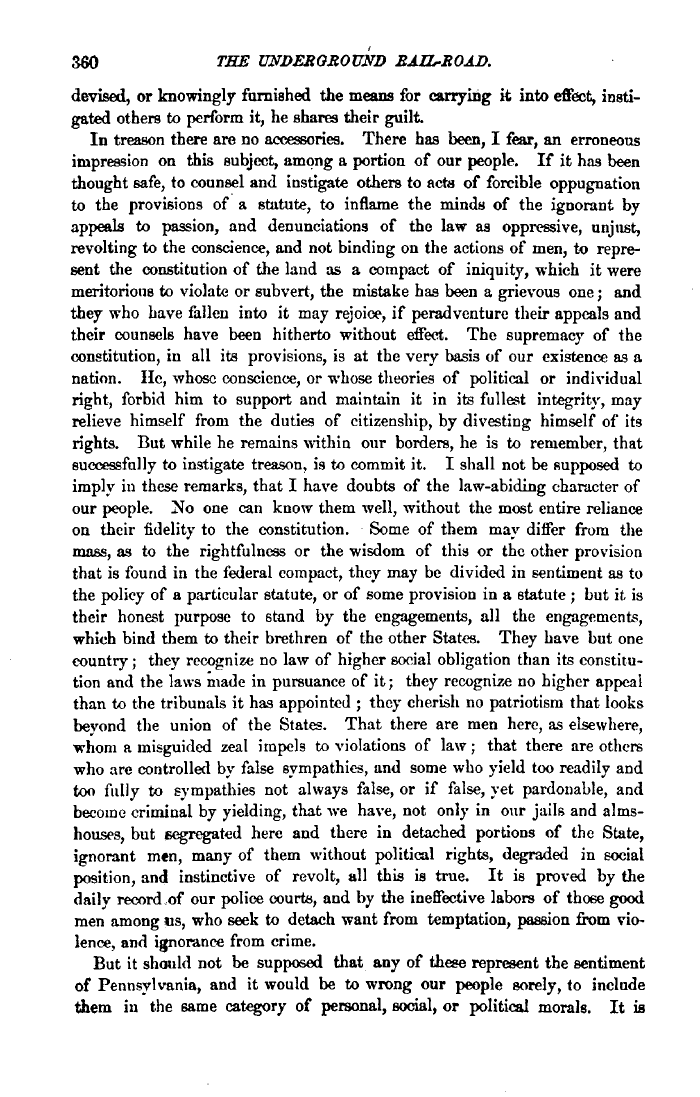 |
||||
 |
||||
| 360 THE UNDERGROUND RAIL-ROAD. devised, or knowingly famished the means for carrying it into effect, instigated others to perform it, he shares their guilt. In treason there are no accessories. There has been, I fear, an erroneous impression on this subject, among a portion of our people. If it has been thought safe, to counsel and instigate others to acts of forcible oppugnation to the provisions of a statute, to inflame the minds of the ignorant by appeals to passion, and denunciations of the law as oppressive, unjust, revolting to the conscience, and not binding on the actions of men, to represent the constitution of the land as a compact of iniquity, which it were meritorious to violate or subvert, the mistake has been a grievous one; and they who Lave fallen into it may rejoice, if peradventure their appeals and their counsels have been hitherto without effect. The supremacy of the constitution, in all its provisions, is at the very basis of our existence as a nation. He, whose conscience, or whose theories of political or individual right, forbid him to support and maintain it in its fullest integrity, may relieve himself from the duties of citizenship, by divesting himself of its rights. But while he remains within our borders, he is to remember, that successfully to instigate treason, is to commit it. I shall not be supposed to imply in these remarks, that I have doubts of the law-abiding character of our people. No one can know them well, without the most entire reliance on their fidelity to the constitution. Some of them may differ from the mass, as to the rightfulness or the wisdom of this or the other provision that is found in the federal compact, they may be divided in sentiment as to the policy of a particular statute, or of some provision in a statute ; but it is their honest purpose to stand by the engagements, all the engagements, which bind them to their brethren of the other States. They have but one country; they recognize no law of higher social obligation than its constitution and the laws made in pursuance of it; they recognize no higher appeal than to the tribunals it has appointed ; they cherish no patriotism that looks beyond the union of the States. That there are men here, as elsewhere, •whom a misguided zeal impels to violations of law; that there are others •who arc controlled by false sympathies, and some who yield too readily and too fully to sympathies not always false, or if false, yet pardonable, and become criminal by yielding, that we have, not only in our jails and alms-houses, but segregated here and there in detached portions of the State, ignorant men, many of them without political rights, degraded in social position, and instinctive of revolt, all this is true. It is proved by the daily record .of our police courts, and by the ineffective labors of those good men among us, who seek to detach want from temptation, passion from violence, and ignorance from crime. But it should not be supposed that any of these represent the sentiment of Pennsylvania, and it would be to wrong our people sorely, to include them iu the same category of personal, social, or political morals. It is |